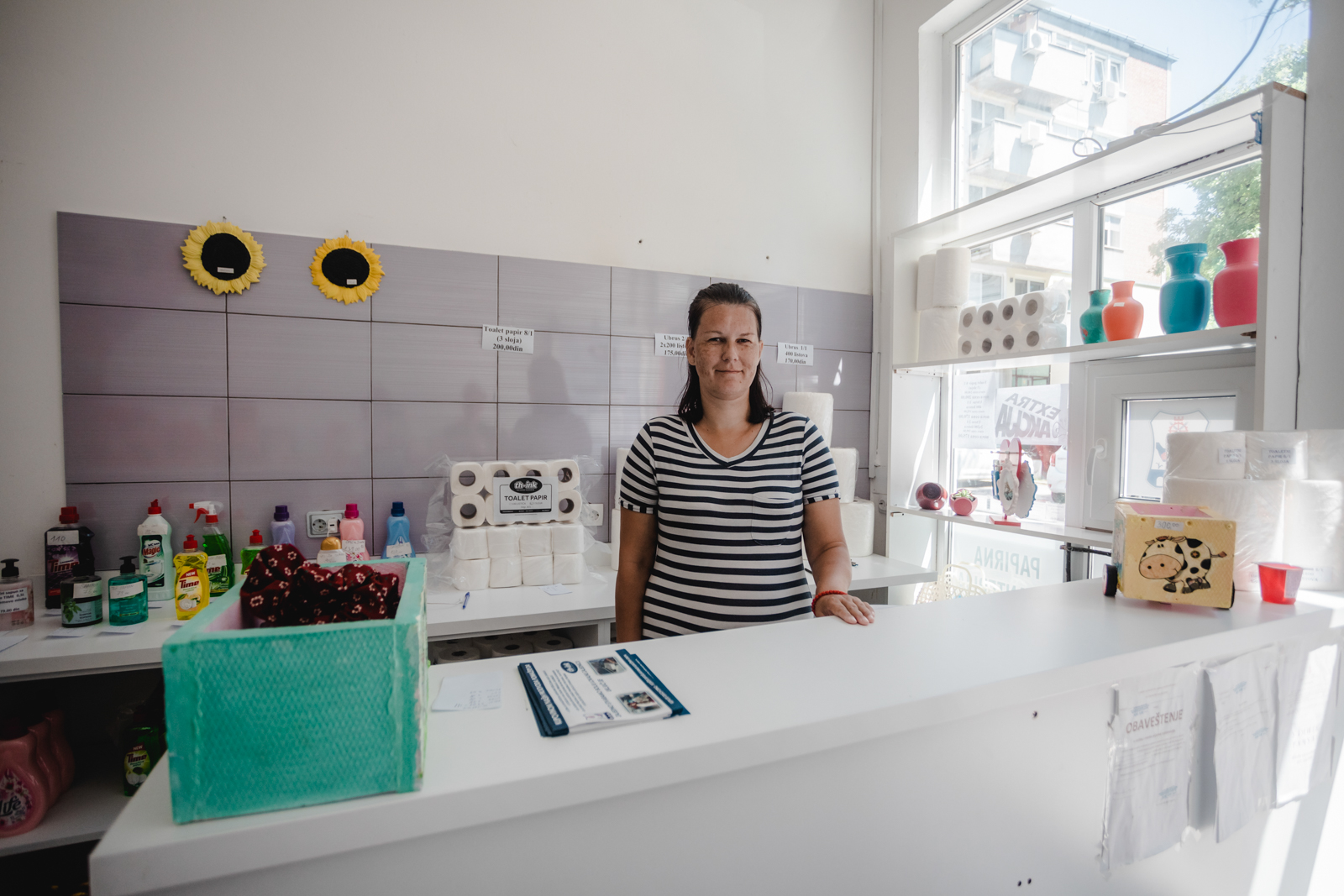When you push the metal, white door of the shop in Kula in the north of Vojvodina with your hand, you hear two sounds – the creaking of iron hinges and the lovely smile of the saleswoman. She is standing in front of racks full of toilet paper, napkins, cardboard cups and paper goods – as known and unknown paper products are called. You don’t know where to look first!
Gordana Vislavski (35) put these products together as if they were souvenirs, and the most sold are packages of toilet paper rolls, because of its high quality and because it is made of reliable recycled material, but also because it is produced in small factory nearby, which the neighbours appreciate.
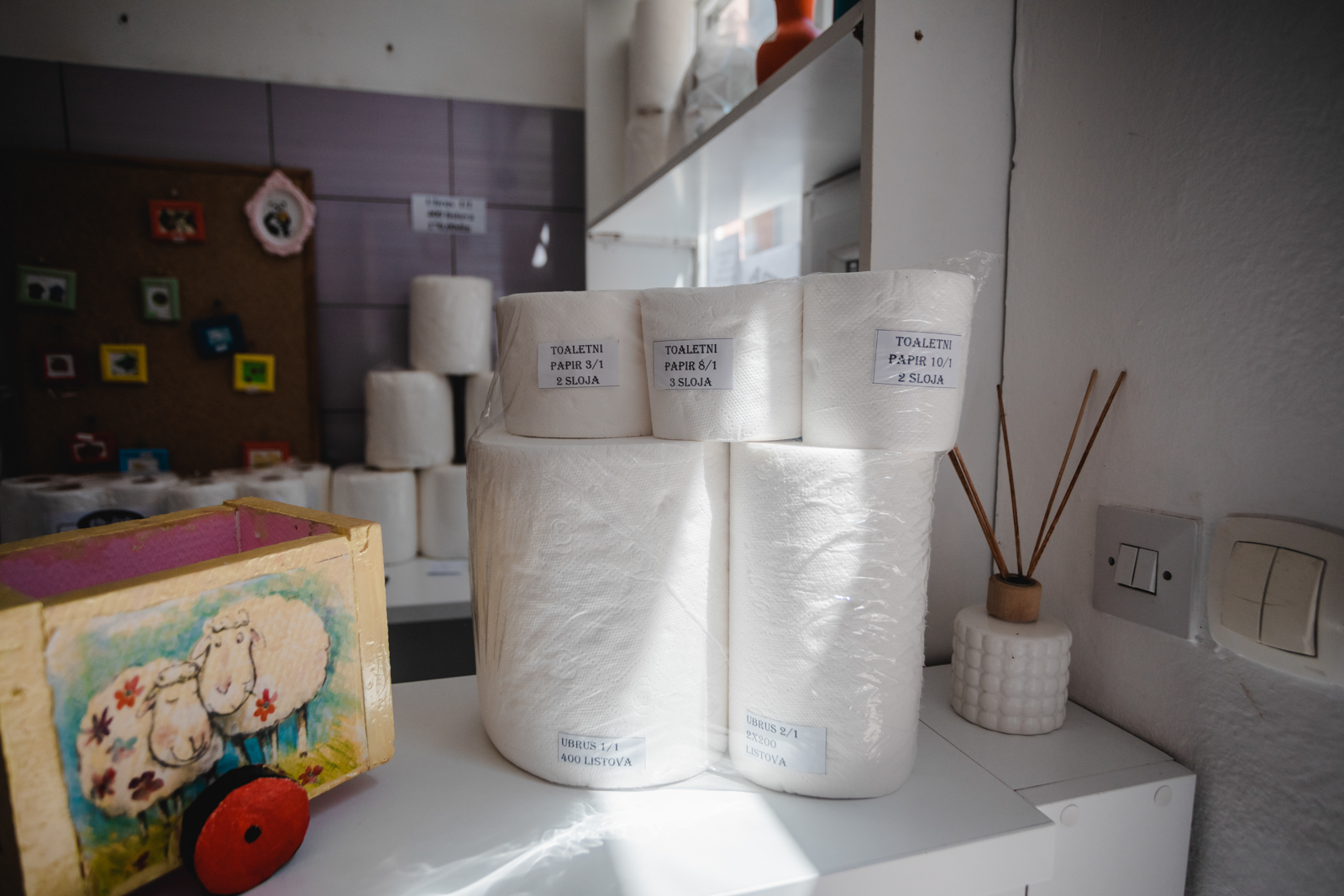
This is the first official job in Gordana’s life. Due to many years of absence for treatment, as a person with disability, she recently obtained a certificate of partial work capacity, and the social enterprise “Plava ptica – th-ink” enabled her to work and support herself, for the first time. My salary means a lot to me because I have something to live on and I don’t depend on anyone, says Gordana as she hands customers a pack of toilet paper, which she personally cut and packed beforehand.
When she is not in the shop, Gordana works in a small social enterprise production facility where workers cut, glue and pack toilet paper. And at the end of the working day, she goes to the apartment, which was provided by the European Union, through the social housing and inclusion support program, for her and three other working women’s peace of mind.
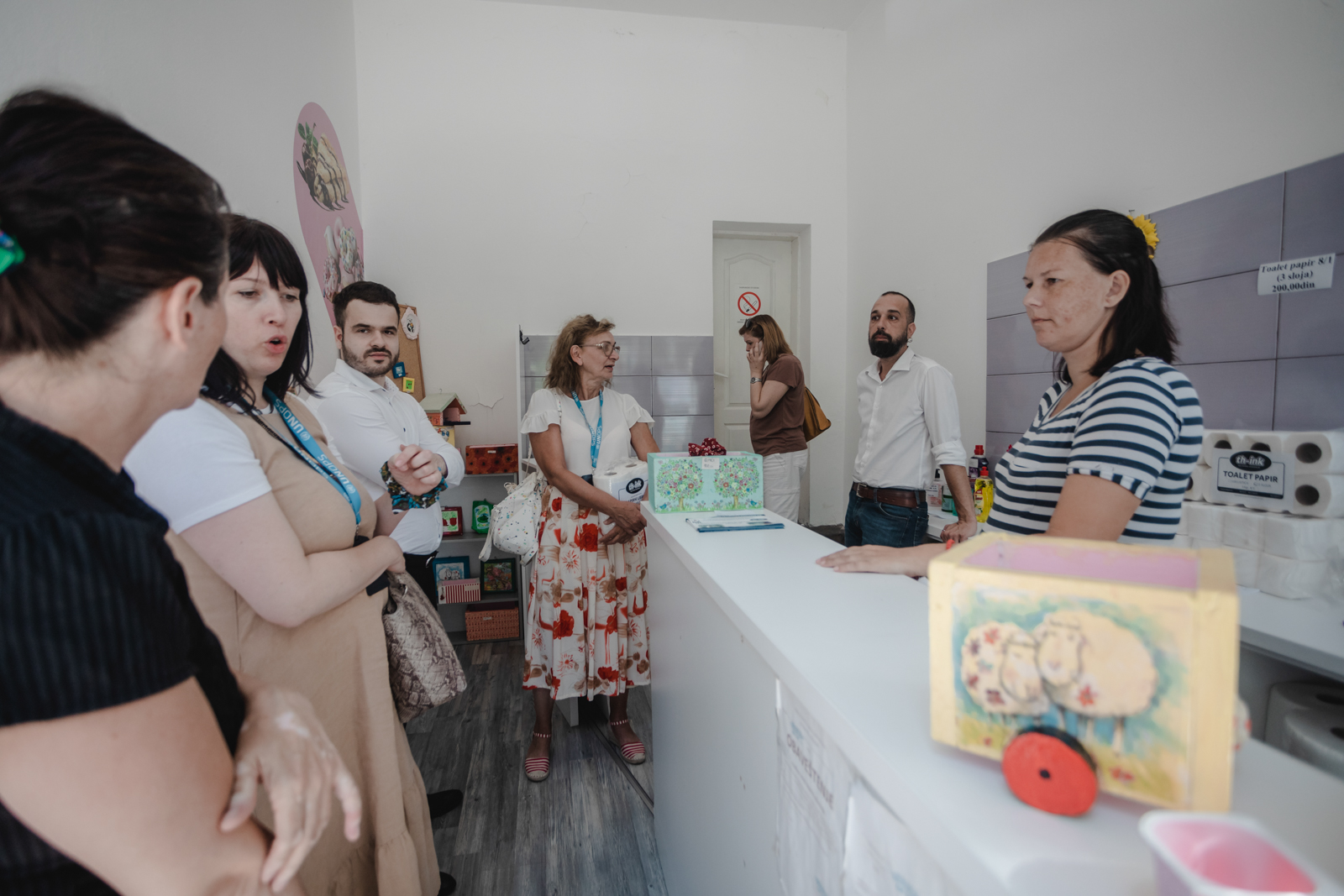
A social enterprise of solidarity economy “TH-INK” was established within the “Plava ptica” association from Kula. People with disabilities and people with mental disabilities are employed in this company, and they produce paper products – toilet paper and paper towels. Buying their products encourages employment and social inclusion of people with disabilities. Apart from their store in Kula, these paper products can also be found at the market in Kula and in shops in the nearby village Ruski Krstur in Bačka.
According to a survey of several European paper, companies, an adult inhabitant annually consumer about 10 kg of toilet paper. Converted into numbers – that is about 3,600 rolls during an average person’s lifetime.
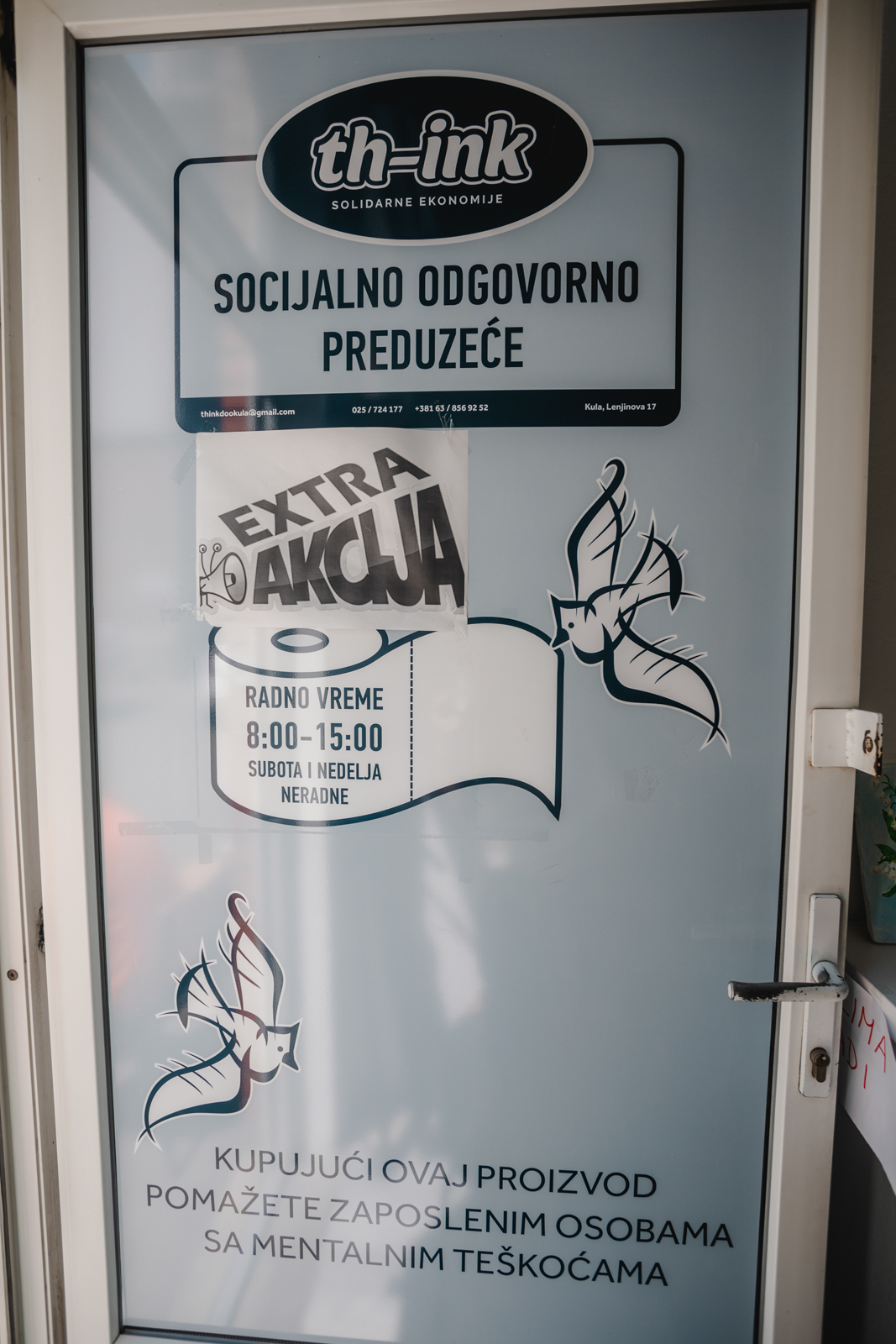
Other than my job, I also got an apartment where I live together with three other women who work with me in the same company, says Gordana. Her roommates also, in addition to a roof over their heads, received valuable work training for the production of paper goods and thanks to this initiative, they are now employed and have regular salaries.
My life has completely changed – now I have a place to live, something to live on, and I have a smile back on my face, says Gordana as she sends greets customers, with the sound of heavy, metal doors gently creaking.
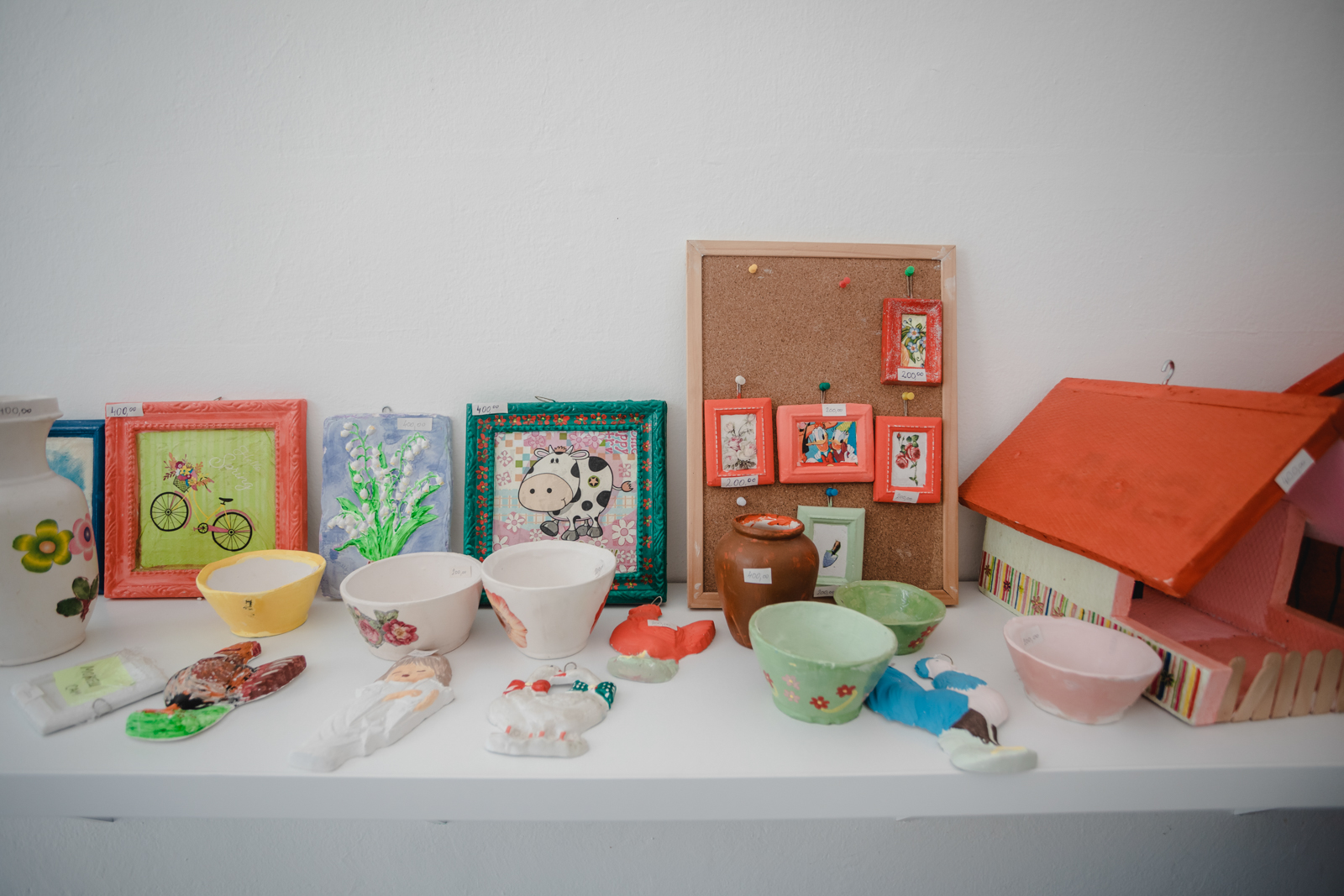
In order to improve living conditions, in a sustainable and responsible manner, for the most vulnerable women and men, girls and boys who live in inadequate and unsafe conditions throughout Serbia, the “European Union Support for Social Housing and Active Inclusion” (EU SHAI) program was launched. EU SHAI was designed to implement social inclusion policies and provide sustainable housing solutions that are accompanied by active inclusion measures for the most vulnerable population. The European Union (EU) allocated 27 million euros for a project that the United Nations Office for Project Services (UNOPS) is implementing in 19 cities and municipalities throughout Serbia, in order to provide more than 380 families with a roof over their heads and support for active inclusion.

